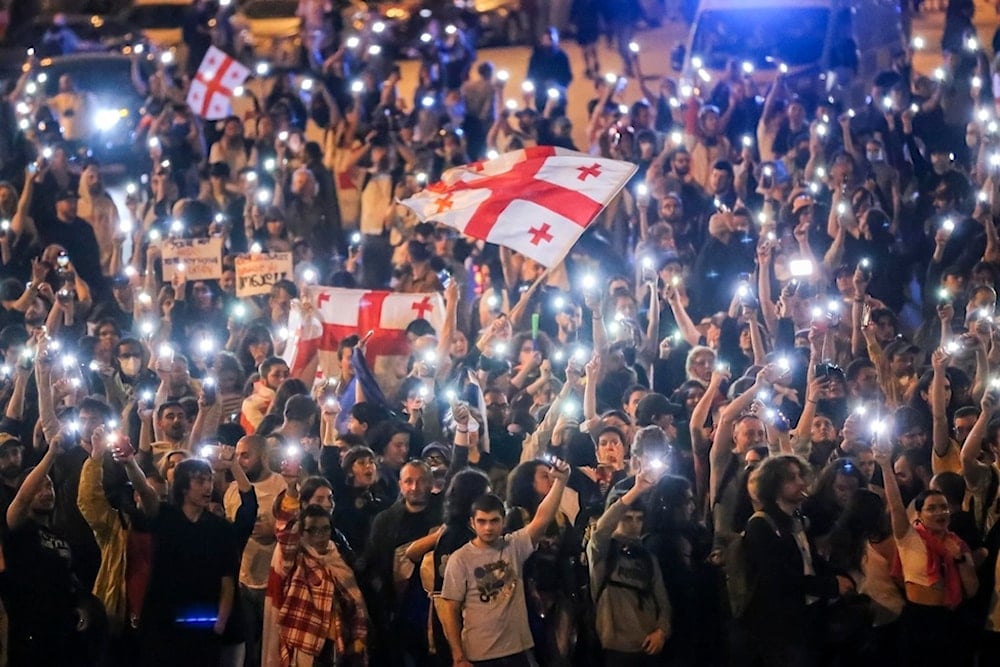Georgia chronicles continue: Thousands protest foreign influence bill
Thousands of demonstrators rallied in central Tbilisi against the government's approval of a foreign policy bill, claiming it was a "Russian law".
-

Demonstrators wave Georgian national flags during an opposition protest against foreign influence law in the center of Tbilisi, Georgia, on Thursday, May 2, 2024 (AP)
Thousands of demonstrators took to the streets of central Tbilisi to protest the foreign influence bill approved by the Georgian parliament.
The bill calls for compiling a list of people and organizations that receive funding from overseas, which sparked widespread protests and concerns among the opposition, who are concerned that it will allow the government to suppress the work of NGOs and activists in the country.
Despite heavy rains, protesters gathered at Tbilisi's central Europe Square, chanting "No to the Russian law!" and "No to the Russian dictatorship!". Georgian and EU flags were also waved during protests.
One protester said protests aimed to "protect our European future and our freedom," against fears of heading in "Russia's direction", while another one said, "they did not want to return to the Soviet Union".
The legislation has drawn criticism from the European Union, the United States, and the United Nations, with UN human rights chief Volker Turk expressing worry over police violence towards demonstrators.
US ambassador says Georgian gov't giving up on 'Euro-Atlantic future'
US Ambassador to Tbilisi Robin Dunnigan voiced alarm last week over Georgia's contentious bill, claiming that recent choices by Georgian authorities had taken the country "away from its Euro-Atlantic future."
In a statement by the embassy, Dunnigan expressed "deep concern" about the choices of the Georgian government saying they deviate from its "Euro-Atlantic future, a destination desired by the overwhelming majority of Georgians. Unfortunately, the ruling party appears determined to advance legislation that the EU has clearly said is incompatible with Georgia's EU aspirations."
He also accused certain factions of the ruling Georgian Dream party of "attacking the greatest supporters of Georgia's sovereignty," referring to the US and the EU, and stated that Washington would remain committed to ensuring Georgia's future in Europe.
"We urge the Georgian government to recommit the country to its Euro-Atlantic future, as written in Georgia's constitution," citing that the US "only wants peace, stability, and prosperity for the Georgian people."

 2 Min Read
2 Min Read









